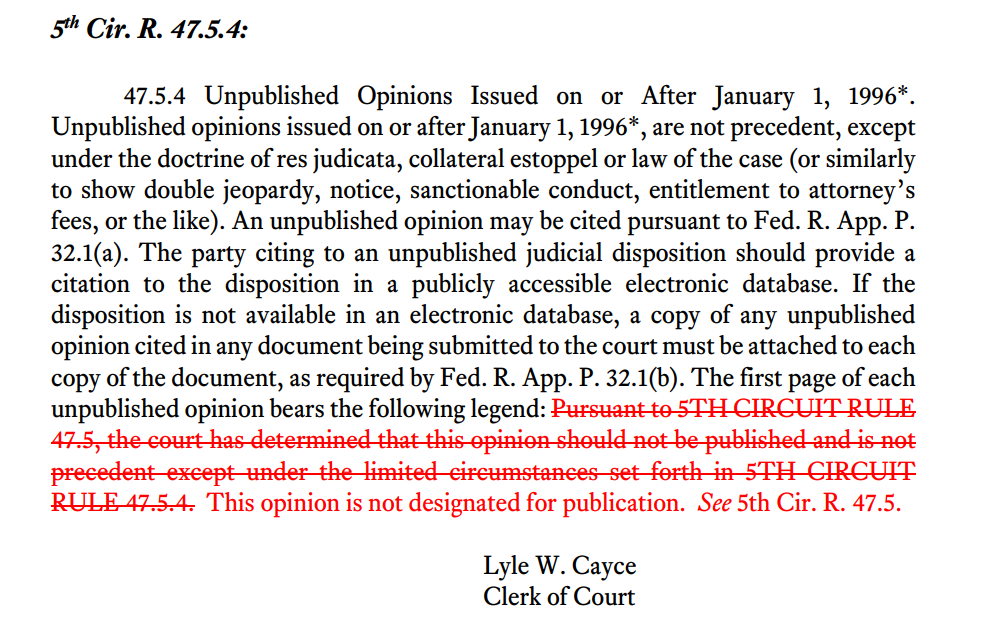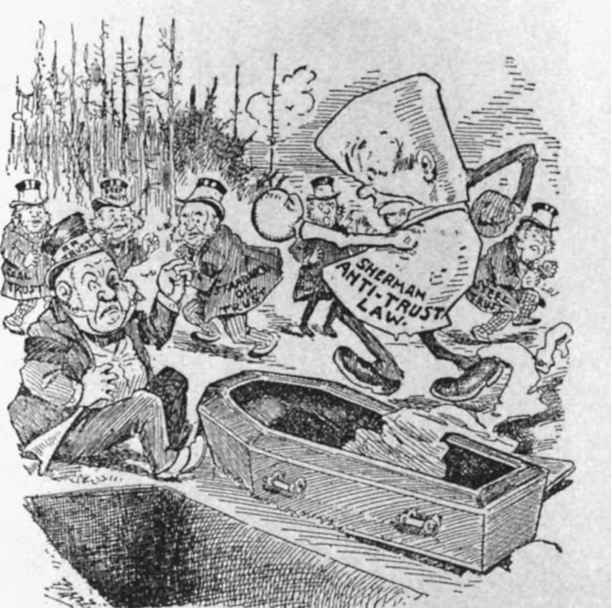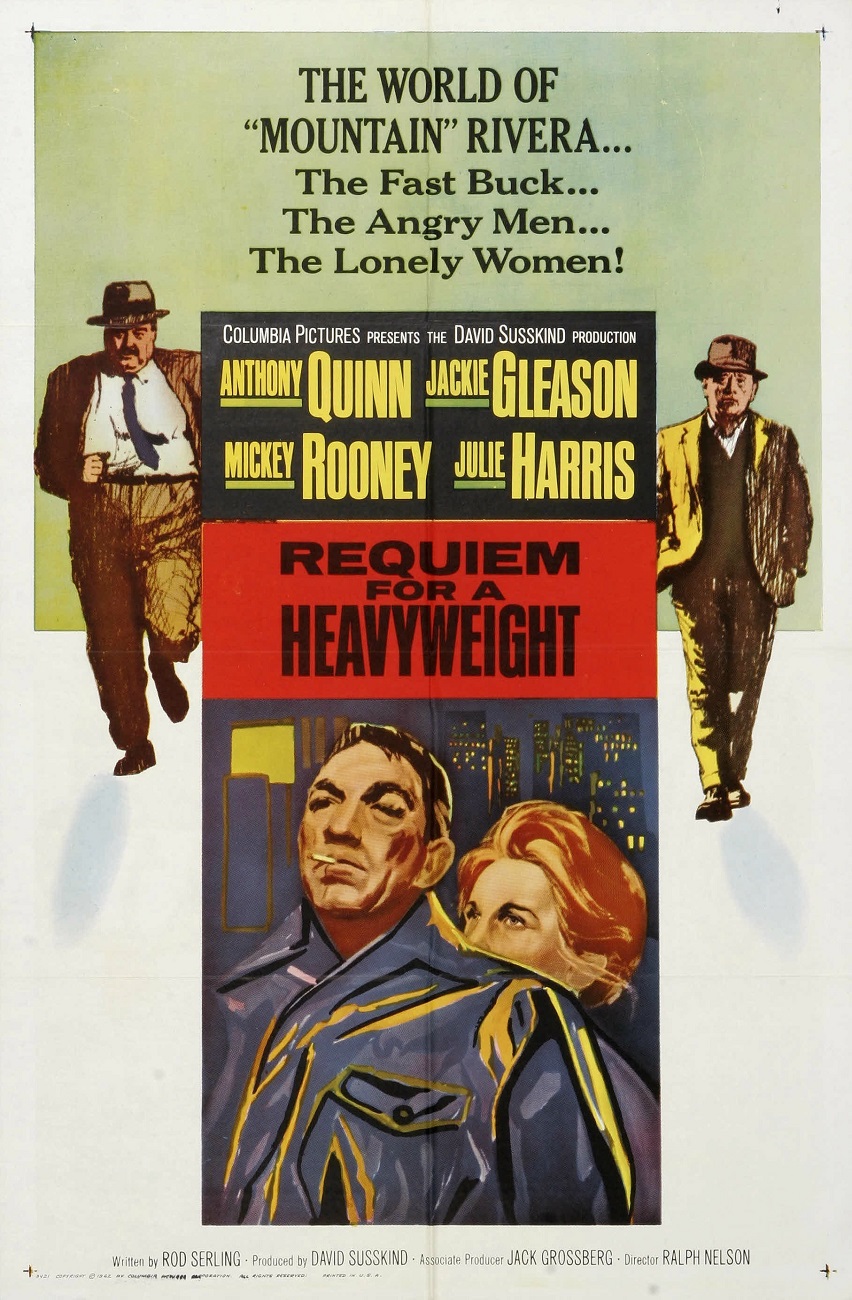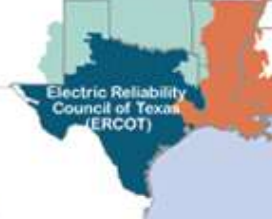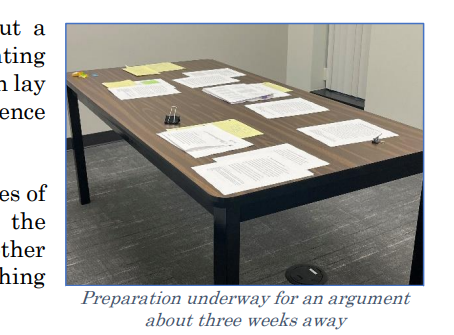 In Rhone v. City of Texas City, the Fifth Circuit denied a request for emergency relief without prejudice, first describing the controlling rules:
In Rhone v. City of Texas City, the Fifth Circuit denied a request for emergency relief without prejudice, first describing the controlling rules:
[Fed. R. App. P. ] 8(a)(1) states that “[a] party must ordinarily move first in the district court for … (A) a stay of the judgment or order of a district court pending appeal.” Rule 8(a)(2) provides, however that “[a] motion for the relief mentioned in Rule 8(a)(1) may be made to the court of appeals or to one of its judges.” That provision is subject to a requirement that “[t]he motion must: (i) show that moving first in the district court would be impracticable; or (ii) state that, a motion having been made, the district court denied the motion or failed to afford the relief requested and state any reasons given by the district court for its action.” Rule 8(a)(2)(A).
Applying those rules, the Court concluded:
In this case, Rhone has moved for relief from judgment in the district court and no ruling has been made. As such, this motion is premature. Therefore, the motion before us is denied without prejudice. Should the district court deny Rhone’s pending motion, Rhone may revive the motion in this Court.
No. 22-40551 (Sept. 19, 2022, unpublished).
